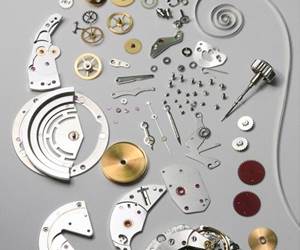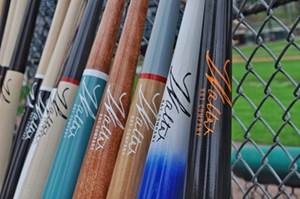Barfeeding Small Diameters
This shop may be located off the beaten path but it’s certainly found a successful and profitable home by applying top of the line technology to its medical part production mix.
You suspect that you may be going the wrong way. As you drive through Mountain City, Tennessee on the two lane road through this small picturesque town nestled in the Appalachian Mountains your thoughts may be of fishing in the stream that runs next to the winding road. This can’t be correct. On this road, which is not wide enough nor busy enough to require a centerline, you pass nice homes with large porches supporting rocking chairs and hanging plants.
About the time you are ready to make a U-turn to back track, it comes into view, Phoenix Medical, a premier contract manufacturer of completed medical devices in such areas as Thoracic, Laparoscopic, Arthroscopic, Gastrointestinal and Cardiovascular.
Phoenix Medical began in 1989 as a custom injection molder of plastic components for the medical device industry which eventually led to insert molding of various cannula and stylet products. Later they chose to enter the needle manufacturing business and are now one of the most advanced manufacturers of specialty needles in the industry.
But, Mountain City? How did these guys get...here?
Phoenix Medical is lead by the founder and chairman, Dennis Foley and his son Chris Foley who is also a co-owner. After 10 years of doing business in Naples, Florida Dennis Foley considered moving the firm to escape ever increasing regulations that made doing business increasingly harder.
According to company lore, Mr. Foley was driving his motorcycle through the mountains of Tennessee’s Cherokee National Forest when he became lost and stumbled across Mountain City by accident. The senior Foley fell in love with the area, and when he found a factory that was available, local and state authorities made it impossible for him NOT to move there. So, he relocated Phoenix to Mountain City in 1999.
The Phoenix Rises
Phoenix Medical has three distinct and separate companies in its 107,000 sq.ft. facility. The Needle Division makes the precision metal components before they are passed to Phoenix Medical Products that molds and assembles the components in plastics. The third stage where these components are sterilized and packaged known as Phoenix Packaging.
Understanding that the Needle Division needed a boost in leadership, Dennis and Chris Foley instituted a nationwide search for a new shop leader and found Frank Maiocco. With an impressive history that started at his family’s job shop, Frank Maiocco, Phoenix’s CNC department manager, has done just about everything in the field of CNC machining. His resume includes stints with prominent OEM machine tool builders after years doing freelance applications work for Swiss lathe builders and a few job shops and production facilities along the way. “Have toolbox will travel,” Mr. Maiocco quips.
One short year ago when Mr. Maiocco joined the team they had 7 Citizen lathes, and had one full shift with a second shift doing very limited production. Under his leadership they now have 15 lathes and are ready for more. “We removed the secondary ops, sped up production, and increased efficiency dramatically.” As a matter of fact, the increase was 300%. Dramatic indeed! About that number he simply says, “That’s why I’m here.”
He contributes this success to, “trying to find all the bottlenecks and get rid of them to improve throughput.” Mr. Maiocco has been working in shops long enough to easily recognize the areas that need improvement, but he credits the ownership, “We have a great working relationship and they (Dennis and Chris Foley) have no problem investing money to rid us of those productivity delays,” Mr. Maiocco says.
Mr. Maiocco’s predecessor was the only person that could make many of the tools needed in production and he was the only person that could set up a machine. The tooling situation Mr. Maiocco inherited was chaotic.
Phoenix had a numbering system in place, but tools were stored in a number of places making inventory management dicey at best. “We are moving from crisis management to crisis prevention,” Maiocco states. “Now, we use standard tooling that we can buy off the shelf, and we stock it all in an automated tool dispenser that is tended to weekly by our tooling vendor, Carolina Machine Tool. It’s been pretty much brainless ever since.”
Phoenix added six Tsugami S207 models with FMB Micromag 20 magazine bar feeders over the next several months. The lathes were purchased from Morris South out of Charlotte, NC, “If I have a hiccup in the morning they can usually have someone out here the same day, or next morning. It has worked out really well,” Mr. Maiocco reports. He also added two Citizens with FMB bar feeders to open up a certain bottleneck in the workflow.
Magazine Bar Feeders Pay?
Mr. Maiocco has relied on the FMB Micromag 20 bar feeders while building his production capacity. “When you buy a bar feeder it’s the first thing that pays for itself through semi-attended and unattended operations,” Mr. Maiocco insists. Wait, what? The bar feeder pays for itself first? “Absolutely,” he says, “when the bar feeder hiccups everything comes to a screeching halt.”
The FMB Micromag 20 is a product of German engineering and manufacturing. It has two distinct operating modes. It functions with a standard type incline plane rack for loading bar sizes of 4mm to 20mm. When a stock size less than 4mm, all the way down to 0.8mm, is required, the Micromag employs a walking beam for these small bar applications.
By separating each small bar unto its own groove in a series of steel beams that are positioned across the length of the feeder, the Micromag moves them ahead and ultimately into position to be loaded into the guide channel. The loading area has a storage capacity for 24 bars, which allows for unattended operation for extended periods. An additional storage tray is located on the front of the magazine for fast reloading.
The FMB Micromag models are equipped with Omron SPS controls with position sensors. Flexible control of stock length and rate of feed help deliver optimum and economic use of the magazine.
For the Swiss type lathes the Micromag comes equipped with a headstock synchronization device that allows it to be compatible with fast moving, sliding headstock lathes. Oil filled polyurethane quick-change guide channels provide the ideal guiding system while reducing noise and vibration to a minimum. The guide channel size can be changed to allow the processing of the smallest bar diameters and it is securely closed with a very efficient, air operated, toggle lever system. Channel changeovers can be performed in as little as 10 minutes to increase production.
The needle Division runs about 50% solid bars and about 50% tubing, with most stock running under 3mm. The average bar size running on the current Tsugami lathe/FMB feeder combination is 2.5mm in diameter and 12 foot in length. The tubing at these small sizes is very susceptible to bending and crimping. “Our barfeeders handle this small diameter tubing and the walking beam keeps it from getting pinched,” Maiocco says. “They work well for us.”
Enter the Tsugamis
Phoenix’s first Tsugami was a 4+1 axis machine. The company’s second machine came in with some upgrades that Tsugami had made in the interim, and it was a full 5-axis capable machine. The plan was for Phoenix to expand with more Tsugamis, and Morris promised them that they would exchange the first 4+1 machine with a newer 5 axis unit so the shop had all matching machines. But then, “Dennis Foley said ‘I don’t want to let the first one go, I have work for it.’ So we ended up buying the additional machine too.” Mr. Maiocco recalls. “After adding two more, one for an additional component and the sixth one for that original part, we are finally able to start cutting the tips!”
After that sixth Tsugami arrived Chris Foley told Mr. Maiocco that that would be it for a while. “Great, I was good with that. I had a lot of other stuff to do,” Mr. Maiocco recalls. “Four hours later Dennis Foley says we need another machine to make guide wires, so we bought another used machine right away.”
It’s All about the Parts
Many of the products are needles made from hollow stock that get the tips ground to puncture the skin. But many of the others are used internally during surgery for purposes such as scraping or cutting. A recent product they are making is a multi piece tool for scraping marrow from the center of bones.
The Tsugami Swiss machines are primarily running hardened stainless steel, 17-4 H 900 and 13-8 H 950. “We never run out of material, we have plenty here. Barry Vanderlinder, our materials manager, is on top of that, says Mr. Maiocco.”
As time has gone on, products outside of the needle business were added to production requirements. One of those new products includes Titanium suture anchors that are drilled into the bone and are used to tie a suture to eyelet to attach muscle and tendons in place.
“We do them in one operation with the 5-axis Tsugami and FMB Micromag combo,” says Mr. Maiocco. The lathe has full 5-axis capable with complete 5-axis milling including kellering operations, rotating an end mill around a point, a full 5-axis interpolation. The hole on the anchor must be perfect as not to cut the suture.
Streamlining the Process
Along with learning CNC programming and how to make good parts, we had to teach this team a new way of thinking, Mr. Maiocco continues. The workflow was choppy, filled with inefficiencies and bottlenecks that were the norm to those who had spent years working within a system which was the only one they had ever known.
With the kind of expansion that the shop has seen in the past 12 months, it can be daunting to develop that much talent in that short of a time to master making such precise parts.
“Our original four operators are now key people,” Mr. Maiocco says, “I have one on each shift and one has become a set-up person. I have him setting up machines, doing light program modifications; he’s coming along real well. I also brought in another set-up person from Virginia.”
Phoenix has other work being done such as bench work, Mr. Maiocco takes people from those areas where they see talent and people that are more qualified. “We take people that we know have the ability to measure components and know how to fill out the quality documentation. We train them for the CNC machines, and then replace them in those other areas.”
One year ago the shop had one and a half shifts with four operators. Today they run three full shifts 24 hours a day with 12 operators, and are discussing the addition of three more.
So, which is harder? Getting the technology right or getting the people up to speed? “All of the above, getting the people right, getting the place organized....things were chaotic at first,” answers Mr. Maiocco.
“Some operators had been here a long time so they knew the product, how to document the quality, and they knew how to change some of the tools and maintain some of the set-ups,” Mr. Maiocco notes. “That gave me a good base to start with. In this area, (Mountain City) everyone is so eager to learn...they know how to work and soak up technology like a sponge. It’s been great.”
Related Content
Keeping Watch on Small Parts
From watch parts to exotic medical applications, this shop takes on the world of micromachining.
Read MoreVideo: Why a Production Machine Shop Started a Baseball Bat Company
A 153-year-old manufacturer of precision, metal pins recently started a side business creating custom wooden baseball bats. The reasoning behind establishing this new company is intriguing, as is how it has helped create a stronger bond with the local community.
Read MoreDoes a Scanning Probe Make Sense on a Swiss-Type?
Swiss-types have limited tooling capacity, but there can be advantages to giving up some of that capacity to take advantage of a touch probe — in fact, a scanning probe — to enable in-process part measurements.
Read MoreAutomation Breakthroughs Revolutionize Precision Machining for Complex Parts
Marubeni Citizen-Cincom delivers custom solutions to address some of the biggest challenges in precision machining from handling small parts, to robot integration and unique tooling needs.
Read MoreRead Next
5 Aspects of PMTS I Appreciate
The three-day edition of the 2025 Precision Machining Technology Show kicks off at the start of April. I’ll be there, and here are some reasons why.
Read MoreEmerging Leaders Nominations Now Open
Here’s your chance to highlight a young person in your manufacturing business who is on the path to be a future leader moving your company forward.
Read MoreA Tooling Workshop Worth a Visit
Marubeni Citizen-Cincom’s tooling and accessory workshop offers a chance to learn more about ancillary devices that can boost machining efficiency and capability.
Read More


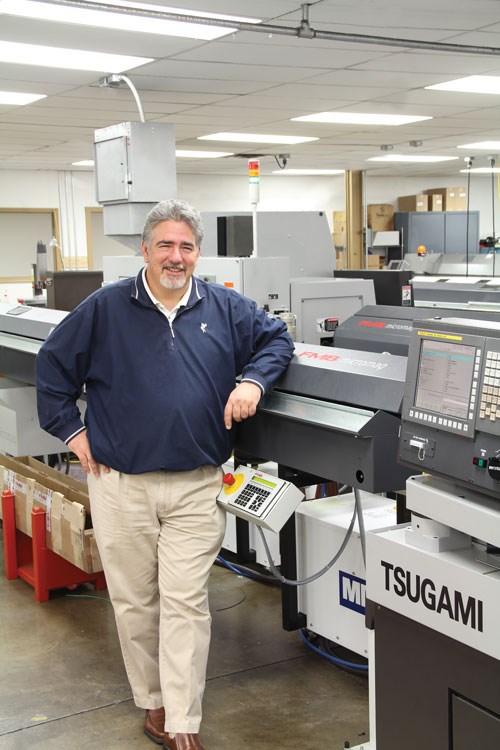
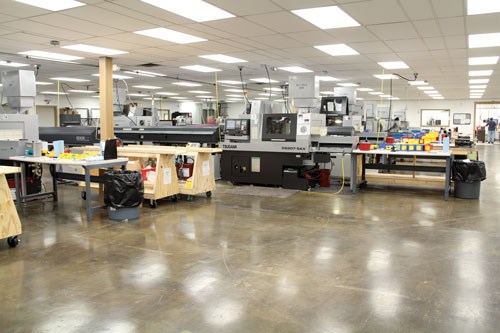
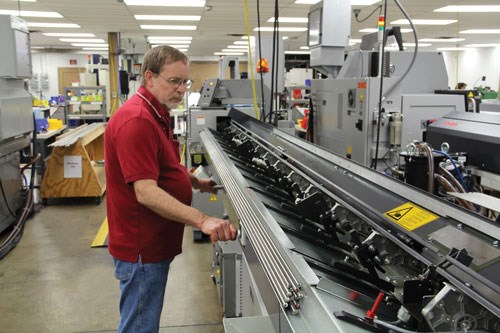
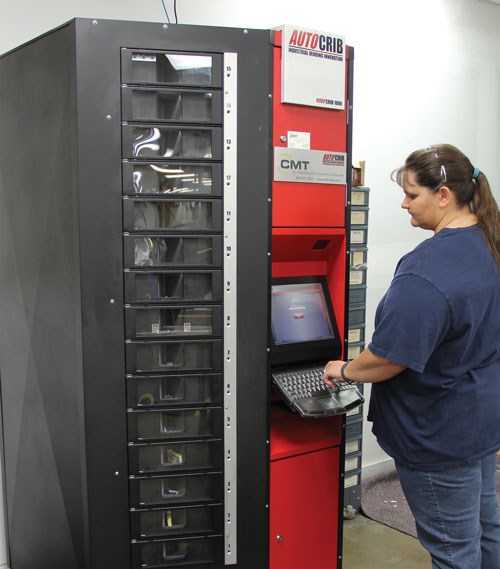







.jpg;maxWidth=300;quality=90)




.jpg;maxWidth=300;quality=90)
